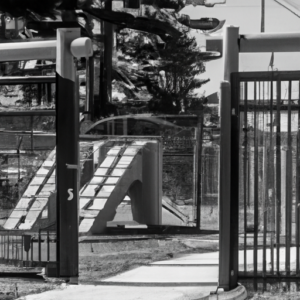Addressing the Canadian Opioid Crisis: Expanding Drug Prohibitions in Child-Dense Areas
The devastating effects of the opioid crisis have been felt nationwide, particularly by local communities in British Columbia. In an effort to combat this issue, local BC politicians have proposed expanding drug prohibitions in areas where children frequently gather. This recent article from the Times Colonist offers a comprehensive overview of their proposal and its potential impact.
Understanding the Opioid Crisis in Canada
Canada has been grappling with the escalating opioid crisis for several years now, with British Columbia being one of the most severely affected provinces. A potent mixture of fentanyl, heroin, and opioid pain relievers has been causing an alarming number of overdoses and deaths, severely disrupting the lives of ordinary Canadians. The crisis has also intertwined with other societal challenges, including homelessness and crime, making its impact that much graver.
Effects of the opioid crisis as highlighted in the article
According to the article, the Canadian opioid crisis has led to several negative outcomes, including:
- Increased mortality rates: Many Canadians are dying due to opioid overdoses, making the crisis a significant public health problem.
- Rise in homelessness: As people fall into the cycle of addiction, many end up losing their homes, jobs, and support systems, leading to an increase in homelessness.
- Surge in crime rates: The rise in addiction rates often leads to an increase in crime as those affected often resort to illegal activities to fund their habits.
Steps Toward Abatement: The Canadian Opioid Abatement Class Action
The BC politicians are not the only ones taking action to mitigate the opioid crisis. There is a nationwide initiative named the Canadian Opioid Abatement Class Action working to bring justice to those negatively affected by the opioid crisis. This legal action targets pharmaceutical companies that manufacture, distribute, and sell opioids, holding them accountable for their role in fostering the crisis.
A Local Politician’s Stand Against the Opioid Crisis
The BC politicians’ proposal aims to expand drug prohibitions in public places where children frequently gather, such as parks, community centres, and school grounds. Their objective is to protect the vulnerable from exposure to such harmful influences, creating safer spaces for children and families.
Naloxone: A Life-Saving Antidote
Amid the crisis, naloxone has emerged as a critical component in combating the epidemic. Naloxone is an antidote for opioid overdose that can quickly reverse the effects of opioids, potentially saving lives. Despite its benefits, the availability and accessibility of naloxone remain a challenge, underscoring the need for continued efforts to tackle this crisis.
Takeaways from the article
Throughout the article, several key points stand out:
- The opioid crisis is a nationwide disaster that causes numerous societal issues, including an increase in mortality rates, homelessness, and crime.
- Politicians in British Columbia are working to combat this issue by proposing an expansion of drug prohibitions in areas frequented by children.
- The Canadian Opioid Abatement Class Action represents a national effort to address the opioid crisis by targeting pharmaceutical companies that produce these drugs.
- Naloxone is a potentially life-saving antidote for opioid overdoses, highlighting the need for its wider availability and accessibility.
In conclusion, the opioid crisis in Canada is a multi-faceted problem that requires a comprehensive and collaborative approach. The proposal by BC politicians to expand drug prohibitions in child-dense areas is a noteworthy step towards protecting our communities from the ravages of this crisis. It is vital to continue supporting such initiatives and enhancing our collective efforts, including the Canadian Opioid Abatement Class Action and the distribution of naloxone, to effectively combat this devastating crisis.
